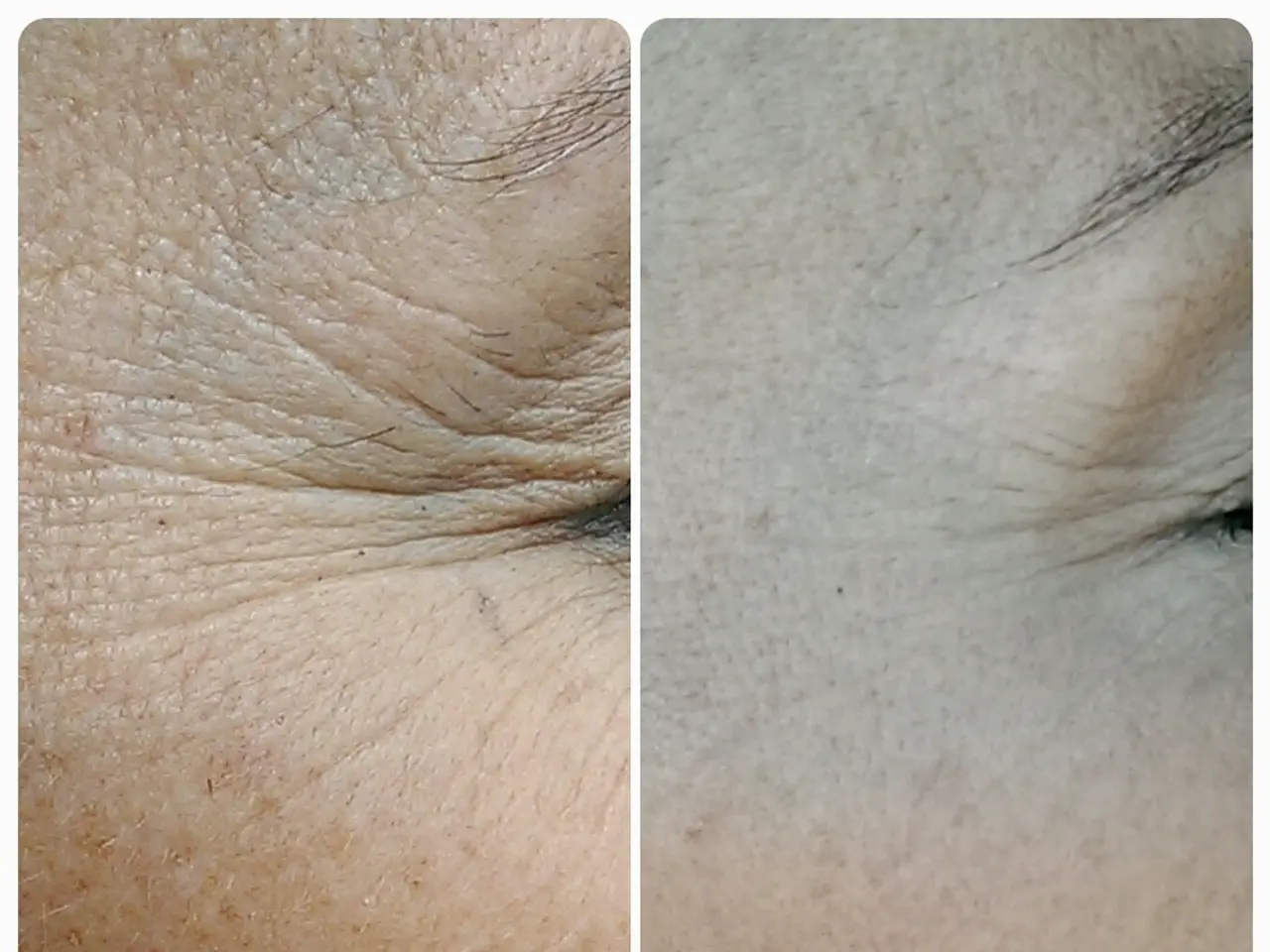Face Skincare Burn: Understanding Causes and Solutions When Your Routine Hurts Instead of Heals
Skincare products are designed to nourish and protect our skin, but sometimes they can cause a burning or stinging sensation on the face. This article explores the causes of such reactions and offers advice on how to avoid them.
Causes of Burning or Stinging Sensations
Several factors can lead to a burning or stinging sensation after using skincare products. One of the primary causes is the use of harsh ingredients. Alcohol, alpha hydroxy acids (AHAs), beta hydroxy acids (BHAs), retinoids, preservatives (such as parabens), sodium lauryl sulfate (SLS), and benzoyl peroxide can irritate the skin, particularly in sensitive individuals.
Allergic reactions are another culprit. Products containing allergens can provoke allergic reactions, manifesting as redness, itching, or burning.
Using products that strip the skin of its natural oils or compromise the skin barrier can also lead to irritation. Even beneficial ingredients like niacinamide can cause irritation if used in high concentrations.
How to Avoid Burning or Stinging Sensations
To prevent the burning sensation that comes after using skincare products, opt for gentle, non-comedogenic ingredients. Avoid harsh exfoliants and products with potentially irritating ingredients like alcohol, acids (AHAs, BHAs), preservatives, essential oils, Sodium Lauryl Sulfate (SLS), Benzoyl Peroxide, and certain essential oils.
Always perform a patch test on a small area before using a new product on your face. If introducing new active ingredients, begin with lower concentrations and gradually increase as needed.
Regular moisturizing is crucial. Use moisturizers containing ceramides, hyaluronic acid, or glycerin to maintain a healthy skin barrier.
For sensitive skin, look for ingredients known for their soothing and hydrating properties, such as aloe vera, glycerin, ceramides, colloidal oatmeal, and hyaluronic acid.
If you suspect an allergic reaction, a patch test may be conducted to identify specific allergens. For persistent irritation, consult a dermatologist for personalized advice.
Incorrect pH levels can disrupt the skin's natural balance, causing irritation. To prevent future occurrences of burning sensations from skincare, it's recommended to patch test new products, introduce products gradually, choose gentle, pH-balanced products, avoid over-exfoliating, moisturize regularly, and be cautious with actives.
If you experience a burning sensation on your face after applying skincare products, immediately rinse with cool water, discontinue the use of the product, apply a cold compress, use a gentle moisturizer, avoid other irritants, monitor the skin, protect your skin from the sun, and seek medical advice if the burning sensation persists or worsens.
During an initial consultation, a dermatologist will ask about the specifics of the burning sensation, including its onset, duration, and any accompanying symptoms. A dermatologist can accurately diagnose the issue, identify triggers, and prevent further damage. Overuse of products containing strong active ingredients can overwhelm and damage the skin barrier, leading to discomfort.
Consulting a dermatologist is important if the burning sensation on the face persists, as it may indicate an underlying skin condition. Treatment recommendations may include stopping the use of all active or potentially irritating products, applying cool compresses, and using topical medications. Recommended topical treatments may include prescription-strength corticosteroids or antihistamines, gentle, soothing products, and fragrance-free and hypoallergenic products.
In conclusion, understanding the causes of burning or stinging sensations from skincare products and taking preventive measures can help maintain healthy, comfortable skin. Always choose gentle products, perform patch tests, and consult a dermatologist if necessary.
Skincare products designed to nourish and protect can cause burning or stinging sensations on sensitive skin due to harsh ingredients like alcohol, AHAs, BHAs, retinoids, preservatives, SLS, and benzoyl peroxide. Allergic reactions to products containing allergens can also lead to these sensations, manifesting as redness, itching, or burning. Using products that strip skin of its natural oils or compromise the skin barrier can cause irritation.
To prevent burning sensations, opt for gentle, non-comedogenic ingredients, avoid exfoliants and potentially irritating ingredients like alcohol, acids, preservatives, essential oils, SLS, and benzoyl peroxide. Always perform a patch test before using new products, and if introducing new active ingredients, begin with lower concentrations.
Regularly use moisturizers containing ceramides, hyaluronic acid, or glycerin to maintain a healthy skin barrier. For sensitive skin, look for soothing and hydrating ingredients like aloe vera, glycerin, ceramides, colloidal oatmeal, and hyaluronic acid.
If you suspect an allergic reaction, a patch test may help identify specific allergens. For persistent irritation, consult a dermatologist. Incorrect pH levels can disrupt the skin's balance, causing irritation, so choose pH-balanced products and avoid over-exfoliating.
If you experience a burning sensation after using skincare products, rinse with cool water, discontinue the product, apply a cold compress, use a gentle moisturizer, avoid other irritants, monitor the skin, protect your skin from the sun, and seek medical advice if the sensation persists or worsens.
During an initial consultation, a dermatologist can diagnose the issue, identify triggers, and prevent further damage, such as discomfort from overuse of products containing strong active ingredients.
Treatment recommendations may include stopping the use of all active or potentially irritating products, applying cool compresses, and using topical medications. Recommended topical treatments may include prescription-strength corticosteroids or antihistamines, gentle, soothing products, and fragrance-free and hypoallergenic products.
In vegan skincare, men's health, women's health, fitness-and-exercise, health-and-wellness, workplace-wellness, and mental-health, it's essential to adopt a gentle skincare routine. This could involve using products without ingredients that cause burning or stinging sensations, implementing regular moisturizing, and consulting a dermatologist if necessary.
As part of a comprehensive approach to health and wellness, nutrition, aging, parenting, weight-management, medicare, sexual-health, and therapies-and-treatments, maintaining a gentle skincare routine is crucial for overall health and well-being. CBD, a popular ingredient in skincare, can provide additional benefits when used in the right concentration and product formulation. Always follow skincare and health guidelines, and consult a healthcare professional for personalized advice.




